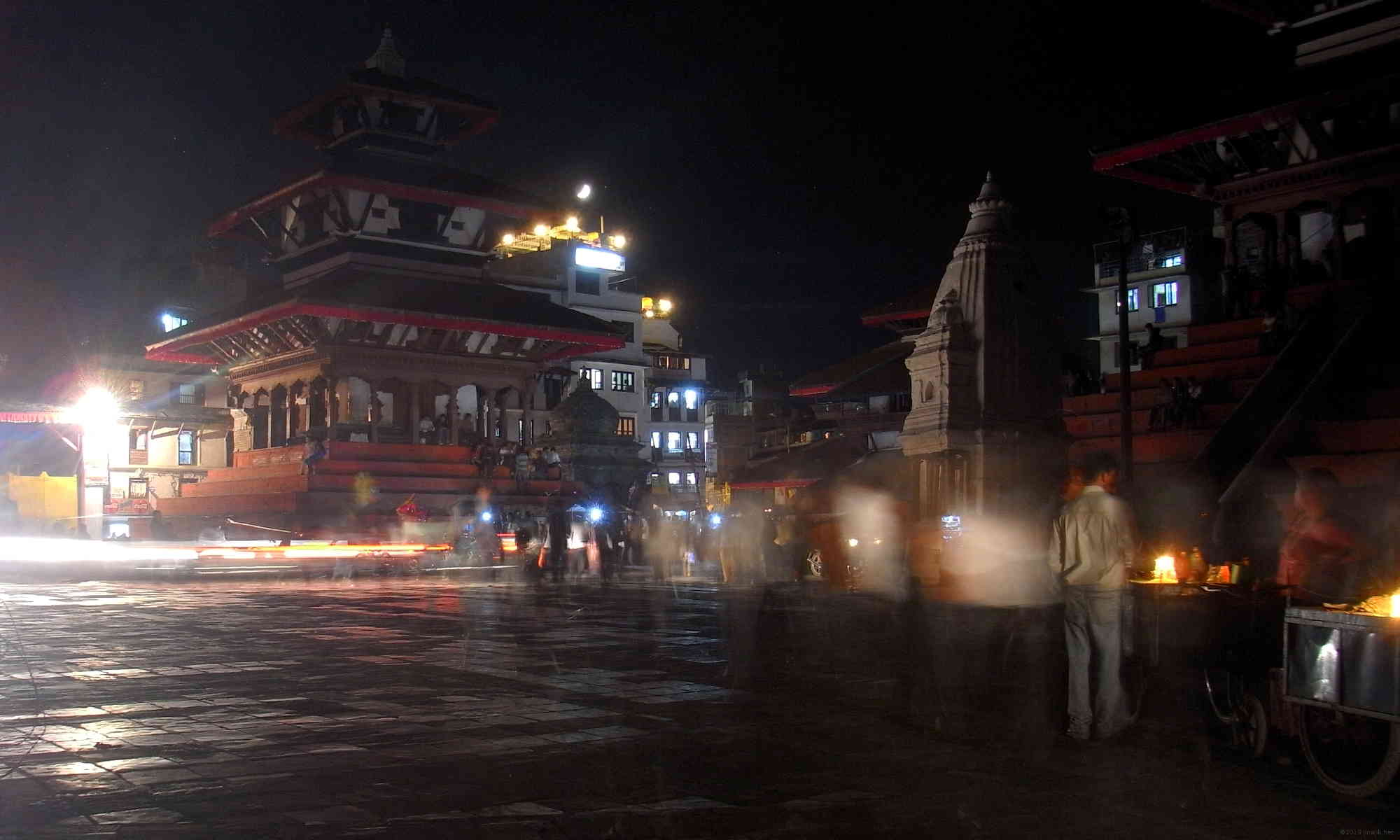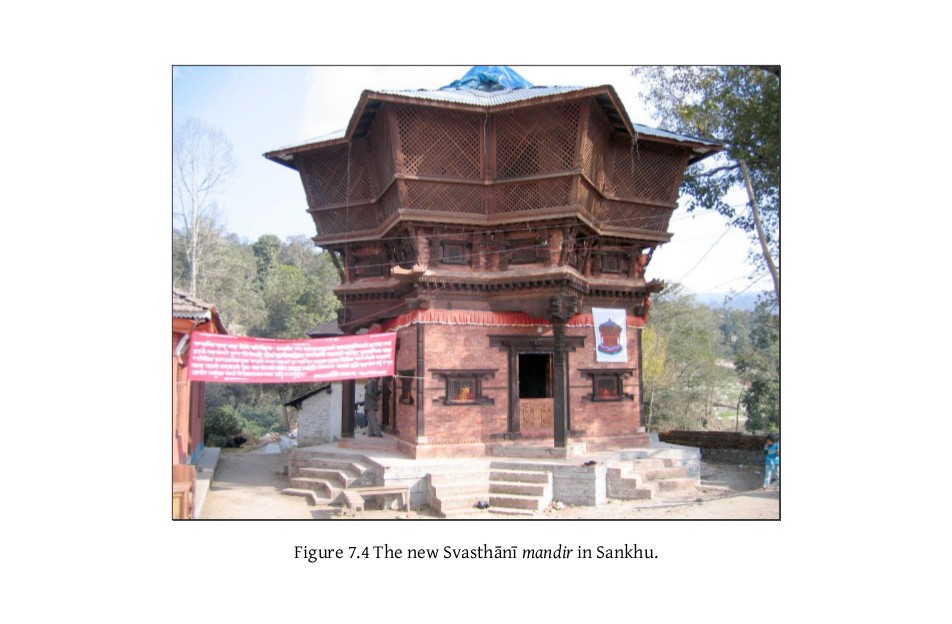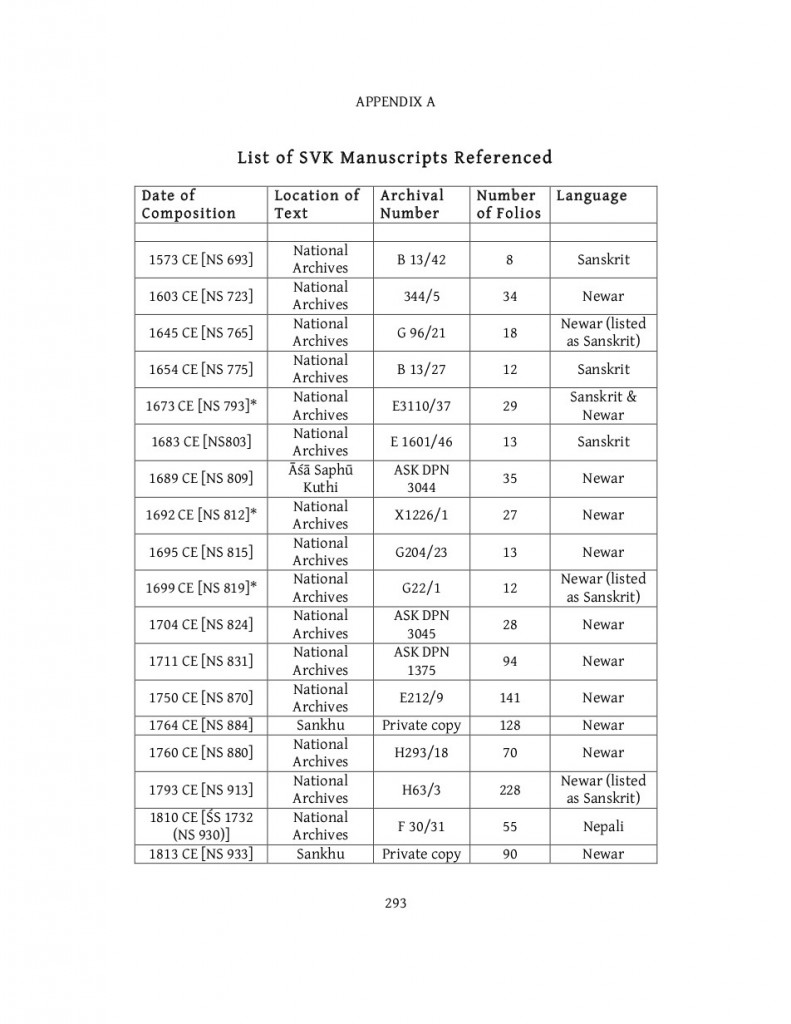Jessica Lynn Vantine Birkenholtz. ‘The Svasthānī Vrata Kathā Tradition: Translating Self, Place and Identity in Hindu Nepal’. PhD dissertation, University of Chicago, 2010. 337 pp. UMI Number: 3408505.
From the Abstract
This dissertation presents an alternate social and cultural history of Nepal through the lens of a textual-historical study of the Svasthānī Vrata Kathā (SVK). A popular Nepali Hindu textual tradition, the SVK has an unbroken history that spans five hundred years and three languages (Sanskrit, Newar, and Nepali). Beginning in the sixteenth century, the text expanded from a handwritten eight-folio palm-leaf local legend on the origin of the Svasthānī vrat, or ritual vow, into a Purāṇic sourcebook of thirty-one chapters in over four hundred printed pages. The SVK’s medieval-modern historical span, the diversity of forms of its textual (re)production, and its sustained uniform core narrative provide a lens through which both immediate shifts and gradual transformations in Nepal’s literary, linguistic, social, religious, and political history can be viewed and interpreted.



